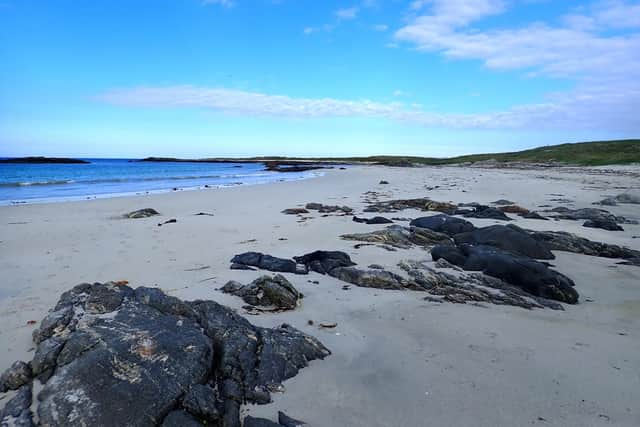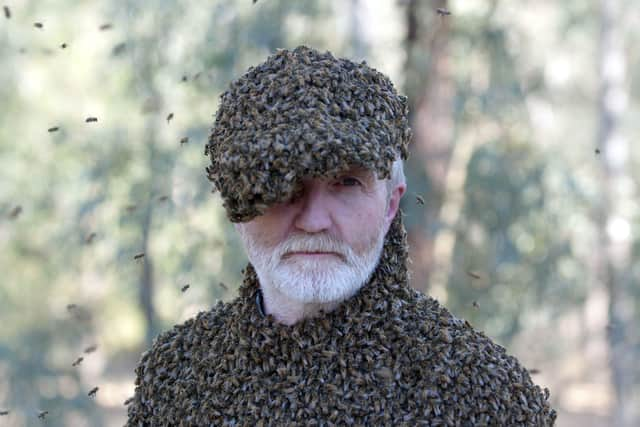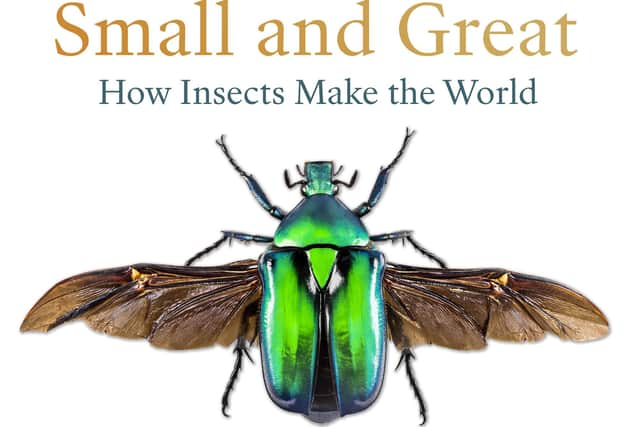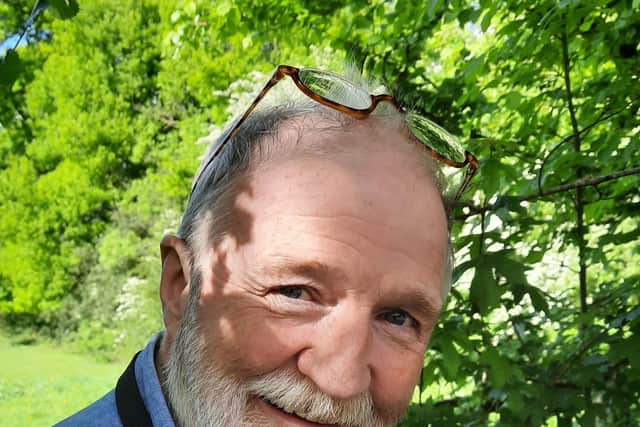'Hallelujah to the midge': The Scot on a mission to save insects and prevent ‘utter disaster’ for the planet
Much more than most of us likely realise, according to Scottish academic, explorer and broadcaster Dr George McGavin.
“Habitats and ecosystems are built around insects,” he said. “I love them.”
Even the dreaded Scottish midge.
Advertisement
Hide AdAdvertisement
Hide AdMcGavin, who was born in Glasgow then raised in Edinburgh, is a trained zoologist and entomologist – an expert on all things creepy and crawly – with research positions at Oxford University and Imperial College London.
He has spent his career studying insects across the world, from the tropical forests of Papua New Guinea and caves of Thailand to from the jungles of Belize and savannas of Tanzania.
He has personally discovered a new spider and has species named in his honour. The 68-year-old is also a regular television and radio presenter for the BBC and other broadcasters.
But he fears for the futures of thousands of species in fragile ecosystems which are under increasing threat from man-made dangers – including pesticides, water pollution, destruction of habitats and climate change.


Now he has produced an audiobook – All Creatures Small and Great – voiced by himself and featuring a star-studded list of contributors, including legendary naturalist Sir David Attenborough.
“Insects are the main event,” McGavin insists. “They make up the vast majority of organisms on earth of any more than a single cell. They make up three quarters of all animals – or more. And they’ve been around for more than 400 million years. They were the first animals on land and in the air. Without them it would be an utter disaster.
“Insects are the major carnivores, they’re the major herbivores, the pollinators – without them you wouldn’t have any flowering plants and we’d lose about a third of all our food.


“They are also the food of the world themselves – most higher animals eat insects. They are the ecological powerhouse.”
Bees are particularly important, he says.
Advertisement
Hide AdAdvertisement
Hide AdDespite having travelled the world tracking down all sorts of exotic species, one of his favourite adventures was at home – searching for one of the UK’s rarest insects, the great yellow bumblebee.
Once found across the nation, it now survives only in the far north and islands of Scotland.


“In the 1950s, when I was a lad, it used to be widespread in the UK,” he said. “Now the wild flowers are gone, and the bees have gone.
“I had to go to Skye and across to Uist, which was beautiful – I loved it “There I was able to film and see, for the first time in my life, a great yellow bumblebee queen.
"It was a fabulous experience – to hear the waves breaking on the shore, and the machair and see this beautiful bee flying.”
He is deeply concerned at the disappearance of insects and other species across Britain and worldwide.
“Anybody who imagines the UK is a green and pleasant land is in cloud cuckoo land,” he said. “We are one of the most nature-depleted countries in the world – now that's a shock.”


He stresses the importance of rewilding, allowing natural vegetation and wildlife to reclaim the countryside, and restoration of Scotland’s peatlands.
Advertisement
Hide AdAdvertisement
Hide AdSpending time in nature has been proven to benefit human health, but McGavin urges us to take more time to get the full rewards.
“I say we need less power-walking and more peering. Walk slower and look at things, turn over bits of wood, look at plants, just take your time.
“You cannot learn anything about the natural world from rampaging through a habitat like an idiot.”
McGavin admits admiring the beastie often considered the plague of the Scottish Highlands.
“I am delighted the midge exists,” he said. “It’s probably the only thing that keeps parts of Scotland completely unspoilt and free from golf courses, condominiums and housing estates.
“Hallelujah to the midge. They’re not going to kill you. Yes, they’re annoying, but they also feed gazillions of other animals.
“People ask why we don’t get rid of them but you can’t just fiddle about with nature. It’s like a house of cards – if you take out one species the whole thing will collapse.”
All in all he’s pretty disappointed with the havoc mankind has wreaked on the planet over a relatively short space of time.
Advertisement
Hide AdAdvertisement
Hide AdHe believes the world’s exploding population and mass consumption are the key problems.
“This is the elephant in the room that nobody's going to talk about, because the capitalist economy, the socio-economic model that we have, is to have lots of people buying shit they don't need to make a few people very rich. And it has been this way for a long time. We as a species are the most ridiculous animal ever. I can't imagine a more ridiculous animal.”
But he is also hopeful.
“The thing that keeps me going is that insects are going to survive, they won't become extinct.
"There will be fewer of them, but they are survivors. I just love thinking about them and looking at them and marvelling at their survivorship and their utility, and everything about them.”
He is very proud of All Creatures Small and Great, and has had lots of great feedback since its release last month.
The 14-hour audiobook has been recorded in a podcast style, with background ambience from the locations visited and chats with several guests – including scientists and celebrities.
“Part of the book is literally what I've learned over my 68 years, and how things are going,” he said.
“Some of it might be a little depressing, but it's factual.
“It's just the way it is.
“I think we'll probably survive but it's going to be in a very changed world.”
Advertisement
Hide AdAdvertisement
Hide AdDr George McGavin’s audiobook All Creatures Small and Great: How insects make the world, featuring Sir David Attenborough and other guests, is out now, published by WFH Original and available via Audible, Apple and Google Play.
Comments
Want to join the conversation? Please or to comment on this article.
